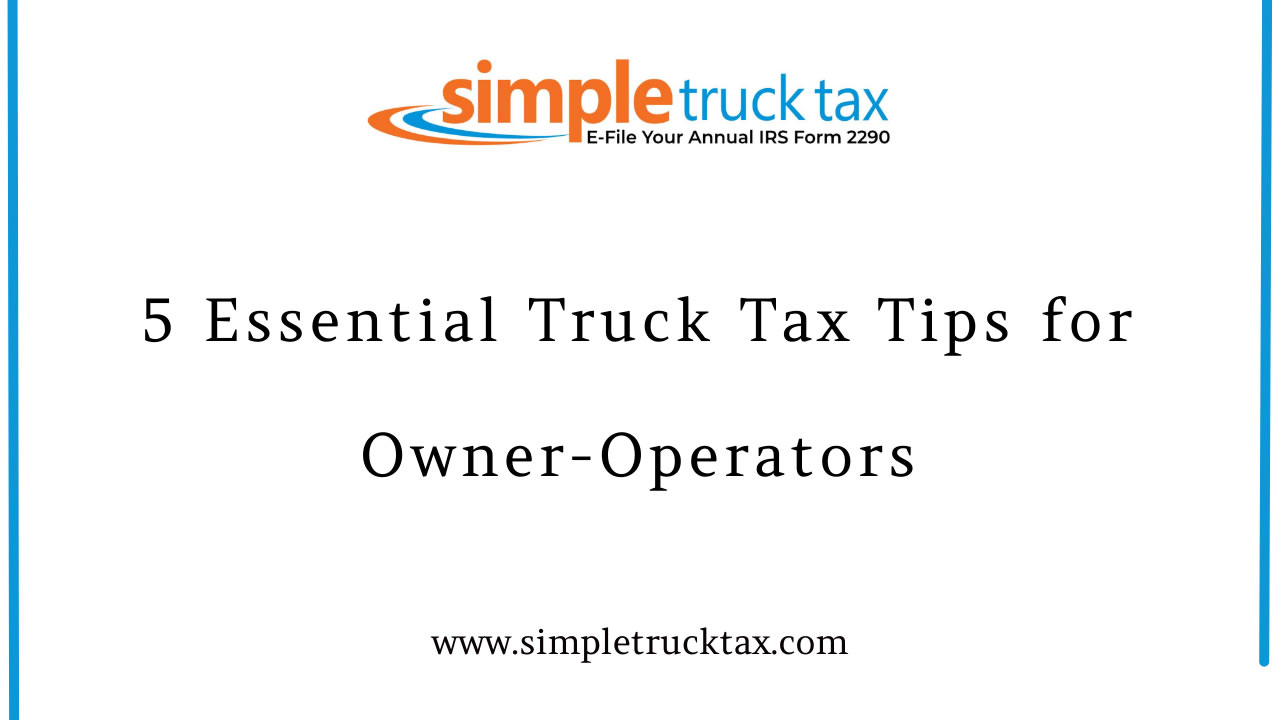
5 Essential Truck Tax Tips for Owner-Operators
As an owner-operator, you're not just a driver; you're also a business owner. With that designation come unique benefits for certain deductions and some critical tax responsibilities, especially in relation to the Heavy Highway Vehicle Use Tax (HVUT) due every year on IRS Form 2290. Our trusted 2290 e-file service is pleased to provide you with some essential truck tax tips to help you save money and stay in full compliance.
Know Your Form 2290:
The Heavy Highway Vehicle Use Tax is required for heavy vehicles weighing 55,000 lbs. and over that are run on public highways. Your Form 2290 is due by August 31st after each July 1st beginning of the tax period. The process of e-filing is recommended due to its promptness and the ability to get your stamped Schedule 1 instantly—an important document for registering your vehicle. Know HVUT filing rules to avoid late-filing penalties.
Exemptions & Suspensions from HVUT:
Not all heavy vehicles pay full tax.
- Tax Suspended Vehicles: If you expect to drive under 5,000 miles in a year (or 7,500 miles for agricultural vehicles), your vehicle might be suspended. Keep meticulous records of your mileage; going over the limit means a prorated tax due.
- Exemptions: Some vehicles can be exempt from HVUT, such as mobile machinery or government vehicles.
Use All Trucking Deductions:
As an owner-operator, you are allowed to deduct many business expenses to decrease taxable income. Some of the most common trucker tax deductions are:
- Fuel (by far the biggest)
- Repairs and maintenance
- Tires and parts
- Insurance premiums
- ELD devices and subscriptions
- Dispatch services and permitting
- Parking and toll fees
- Per diem (for meals and incidental expenses while away from home)
- Professional fees (e.g., for tax preparation, accounting)
Keep Good Records:
This is the critical, prime condition. Maintain thorough records for all income and expense accounts. This involves receipts, invoices, bank statements, and electronic records. Well-organized records help to weather an IRS audit with minimal suffering and make tax preparation easy. An effective record-keeping system for Form 2290 and all other business expenses would serve you well.
Estimated Taxes:
Since you are self-employed, it is likely you will be required to pay estimated income taxes quarterly. Failure to do so may lead to a penalty. You might need to discuss developing an appropriate schedule of estimated tax payments with your tax professional.
In short, by knowing your Form 2290 obligations, maximizing allowable deductions, and keeping good records, you may greatly improve your financial condition as an owner-operator.